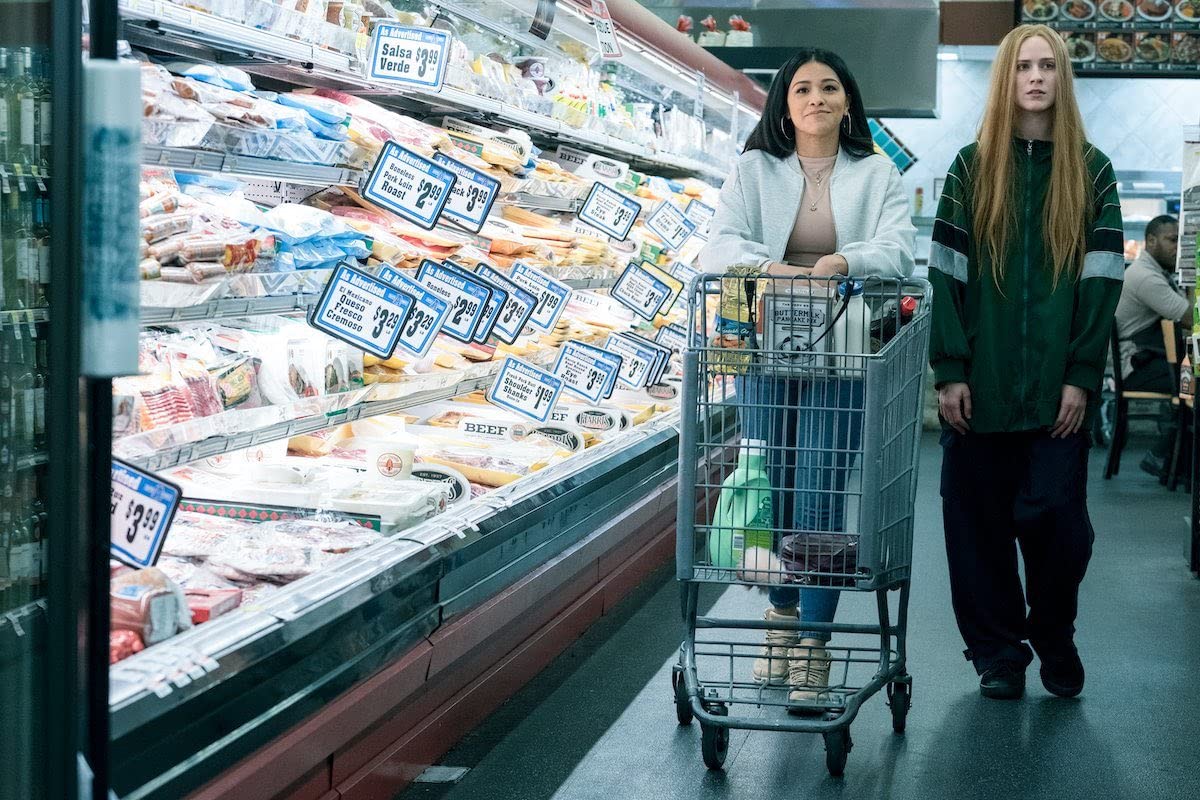In Miranda July’s third feature, childhood traumas and revelatory earthquakes shape the world of an emotionally dysfunctional young woman who’s going to learn the most banal of valuable lessons: it’s okay to enjoy dumb things (love apparently being one of them).
Old Dolio (Evan Rachel Wood) is the oddly named and grungy-looking daughter of a quirky couple that prefers an anarcho-libertarian hobo lifestyle to a nine to five job. These ‘self-made’ outcasts are trying to scam their way through life while ironically working every day to clean-up the foamy pink deluge which hypnotically seeps through the walls of their California ‘home’—a 500$ per month office space attached to a soap factory. In comes Melanie (Gina Rodriguez) a glitzy outgoing Puerto Rican who eventually saves Dolio from her emotionally unavailable hippie parents who maintain a purely transactional relationship with their daughter.
Kajillionare plays out like a neoliberal’s straw-man common sense critique of any real attempt to radically reject capitalism. By portraying the parents as outrageously grotesque weirdos, July disingenuously creates the impression that falling in line is the only real alternative to being a sociopathic counter-cultural loser. It’s only natural then that Melanie’s real function is to show Dolio the simple joys of shopping at a supermarket, getting called “hon” and cashing in on childhood trauma. But it’s only after Dolio gets born again in the wake of a much-dreaded earthquake that she is ready to accept the gospel of commodity fetishism and buy herself a pack of chips, or go to a restaurant for the first time ever.
In the end July self-righteously demonstrates that becoming a well-adjusted adult means leaving the bad kind of wokeness (the radical one) behind and meeting someone who will find your quirky pathologies kind of charming.
